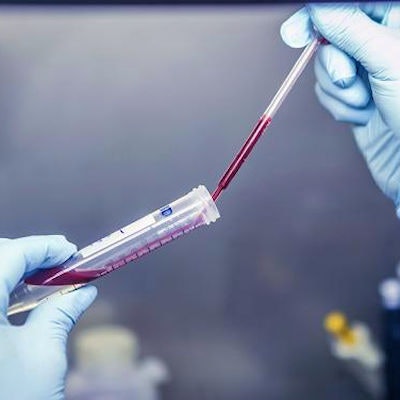
A blood test that assesses levels of certain proteins shows promise for predicting whether a person at risk for psychosis will develop a psychotic disorder in the future, according to a study published August 26 in JAMA Psychiatry.
The findings could help clinicians better assess and treat patients, wrote a team led by David Cotter, PhD, of the Royal College of Surgeons in Ireland (RCSI) University of Medicine and Health Sciences in Dublin, Ireland.
"Our research has shown that, with help from machine learning, analysis of protein levels in blood samples can predict who is truly at risk and could possibly benefit from preventive treatments," Cotter said in a statement released by the university.
People with mild or brief psychotic symptoms are considered at higher risk of developing disorders such as schizophrenia, but only 20% to 30% actually do, according to Cotter and colleagues. The researchers analyzed blood samples from people at risk of psychosis and followed them for several years.
The team found that there were patterns in proteins from the blood samples that predicted which patients developed psychotic disorders during follow-up; the proteins were associated with inflammation, the researchers wrote.
The most accurate blood test the researchers developed was based on 10 proteins; it correctly identified those who went on to develop a psychotic disorder in 93% of patients and correctly identified those who did not in 80%.
"Ideally, we would like to prevent psychotic disorders, but that requires being able to accurately identify who is most at risk," Cotter said. "We now need to study these [blood] markers in other people at high risk of psychosis to confirm these findings."



















